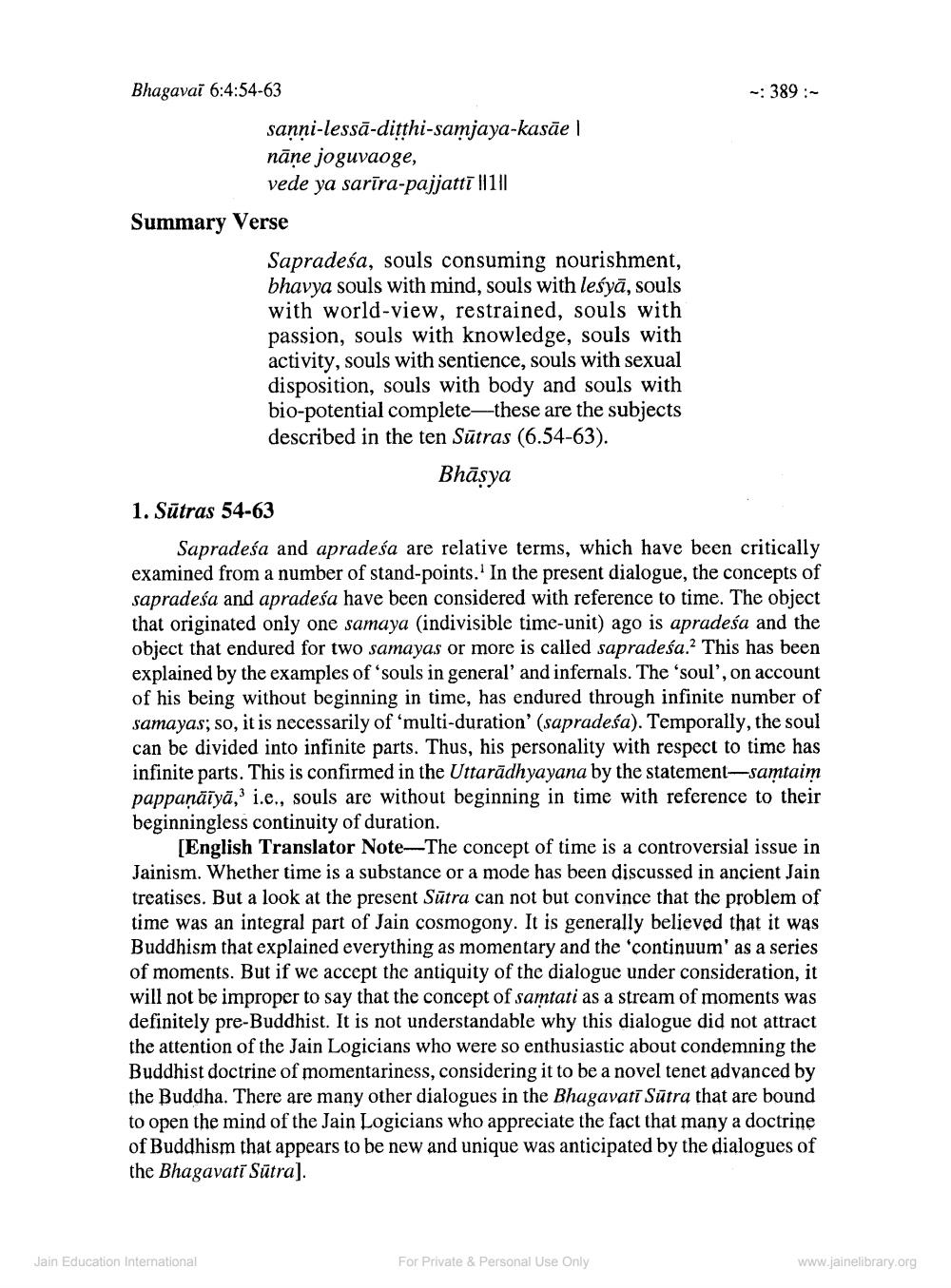________________
Bhagavai 6:4:54-63
- 389:
sanni-lessā-ditthi-samjaya-kasāe || nāne joguvaoge,
vede ya sarīra-pajjatti ||1|| Summary Verse
Sapradeśa, souls consuming nourishment, bhavya souls with mind, souls with lesyā, souls with world-view, restrained, souls with passion, souls with knowledge, souls with activity, souls with sentience, souls with sexual disposition, souls with body and souls with bio-potential complete—these are the subjects described in the ten Sūtras (6.54-63).
Bhāsya 1. Sūtras 54-63
Sapradeśa and apradeśa are relative terms, which have been critically examined from a number of stand-points. In the present dialogue, the concepts of sapradeśa and apradeśa have been considered with reference to time. The object that originated only one samaya (indivisible time-unit) ago is apradeśa and the object that endured for two samayas or more is called sapradeśa.? This has been explained by the examples of 'souls in general and infernals. The ‘soul, on account of his being without beginning in time, has endured through infinite number of samayas; so, it is necessarily of ‘multi-duration' (sapradeśa). Temporally, the soul can be divided into infinite parts. Thus, his personality with respect to time has infinite parts. This is confirmed in the Uttarādhyayana by the statement-samtaim pappaņāīyā, i.e., souls are without beginning in time with reference to their beginningless continuity of duration.
[English Translator Note-The concept of time is a controversial issue in Jainism. Whether time is a substance or a mode has been discussed in ancient Jain treatises. But a look at the present Sūtra can not but convince that the problem of time was an integral part of Jain cosmogony. It is generally believed that it was Buddhism that explained everything as momentary and the 'continuum' as a series of moments. But if we accept the antiquity of the dialogue under consideration, it will not be improper to say that the concept of samtati as a stream of moments was definitely pre-Buddhist. It is not understandable why this dialogue did not attract the attention of the Jain Logicians who were so enthusiastic about condemning the Buddhist doctrine of momentariness, considering it to be a novel tenet advanced by the Buddha. There are many other dialogues in the Bhagavati Sūtra that are bound to open the mind of the Jain Logicians who appreciate the fact that many a doctrine of Buddhism that appears to be new and unique was anticipated by the dialogues of the Bhagavati Sūtra).
Jain Education International
For Private & Personal Use Only
www.jainelibrary.org




